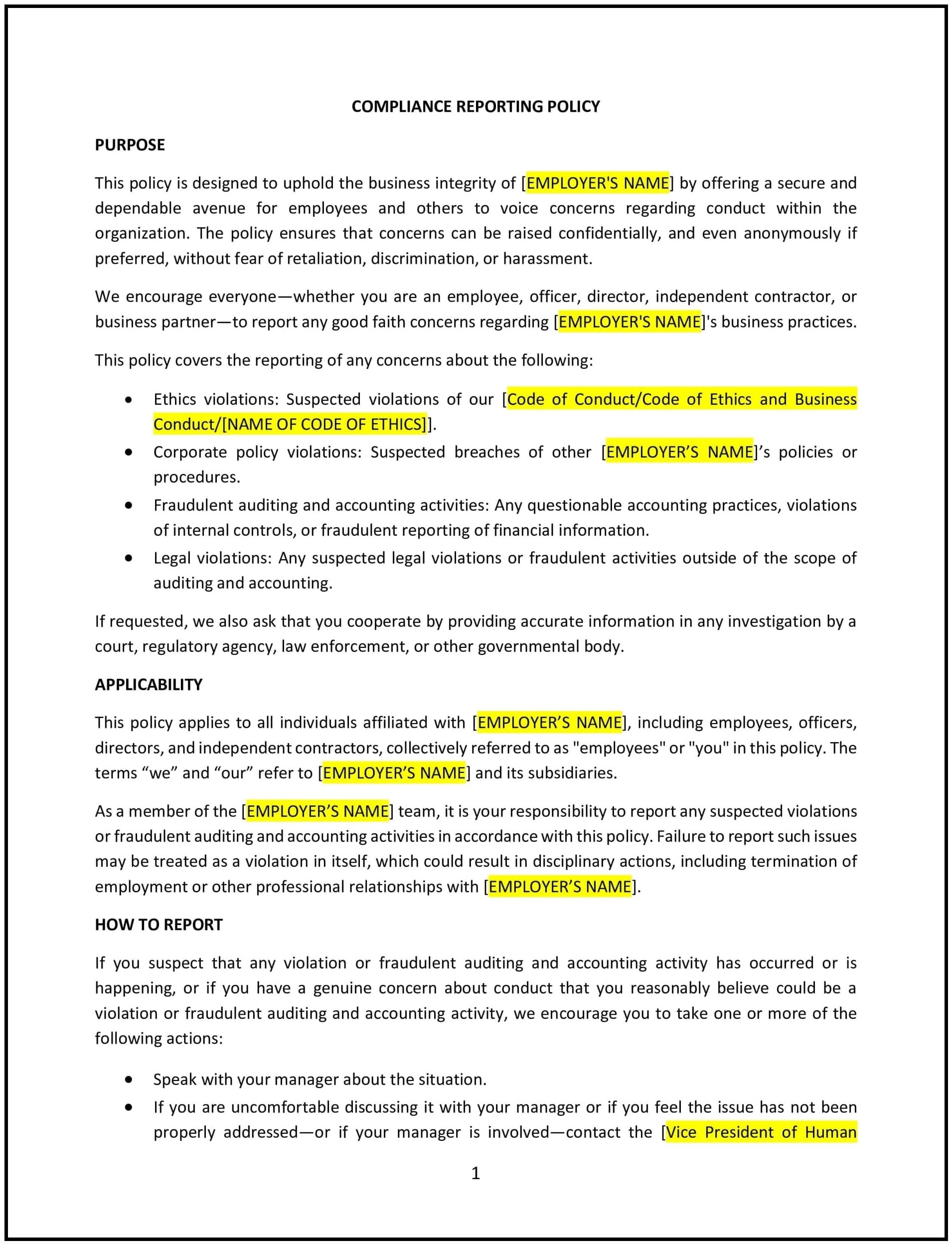Compliance reporting (New Jersey) policy: Free template
Got contracts to review? While you're here for policies, let Cobrief make contract review effortless—start your free review now.

Customize this template for free
Compliance reporting (New Jersey)
A compliance reporting policy helps New Jersey businesses establish clear procedures for employees to report ethical concerns, regulatory violations, or workplace misconduct. This policy outlines reporting channels, confidentiality protections, and how reported issues will be investigated. It also sets expectations for non-retaliation to ensure employees feel safe when raising concerns.
By adopting this policy, businesses in New Jersey can promote transparency, accountability, and ethical business practices.
How to use this compliance reporting policy (New Jersey)
- Define reportable concerns: Specify the types of issues employees should report, including financial misconduct, regulatory violations, workplace harassment, safety concerns, and unethical behavior.
- Establish reporting channels: Provide employees with multiple ways to report concerns, such as through a direct supervisor, HR, an anonymous hotline, or a designated compliance officer.
- Protect confidentiality: Explain how the company will handle reports confidentially and limit information sharing to those involved in the investigation.
- Outline the investigation process: Describe how reports will be reviewed, including timelines, investigation procedures, and potential outcomes.
- Prohibit retaliation: State that employees who report concerns in good faith will be protected from retaliation, such as termination, demotion, or harassment.
- Provide guidance on anonymous reporting: Explain whether employees can report issues anonymously and how anonymous reports will be handled.
- Document and track reports: Require businesses to maintain records of compliance reports, investigations, and resolutions to ensure accountability.
- Review and update: Regularly assess the policy to reflect changes in New Jersey state laws and best practices for compliance reporting.
Benefits of using this compliance reporting policy (New Jersey)
This policy provides several benefits for New Jersey businesses:
- Encourages ethical behavior: Promotes a culture of integrity and responsibility among employees.
- Reduces legal and financial risks: Helps businesses address compliance concerns before they escalate into legal issues.
- Protects whistleblowers: Provides employees with a safe and confidential way to report concerns without fear of retaliation.
- Strengthens business reputation: Demonstrates a commitment to ethical operations and regulatory adherence.
- Improves issue resolution: Allows businesses to identify and address concerns early, preventing further harm or financial loss.
Tips for using this compliance reporting policy (New Jersey)
- Communicate the policy clearly: Ensure employees understand how and where to report concerns by including the policy in handbooks and training programs.
- Encourage a reporting culture: Reinforce the importance of speaking up and assure employees that reports will be handled fairly and confidentially.
- Train managers on handling reports: Provide guidance for supervisors and HR on receiving and escalating compliance reports appropriately.
- Monitor policy effectiveness: Track reporting trends and address any barriers to employees using the reporting system.
- Review the policy regularly: Update the policy as needed to align with changes in business operations, regulatory requirements, or New Jersey laws.